There are various Kubernetes alternatives available and you can find one that can suit your needs.
As you explore the evolving landscape of container orchestration, you’ll notice that Kubernetes has set a high standard in the field.
However, the complexity and robustness of Kubernetes might not align with every project’s needs or resources.
This is where alternatives to Kubernetes come into play.
They offer varying levels of simplicity, flexibility, and feature sets to better suit diverse deployment strategies and organizational requirements.
Among these alternatives, you’ll find platforms that range from more straightforward, such as Docker Swarm, to solutions like Amazon Elastic Container Service (ECS) and Azure Kubernetes Service (AKS), which integrate deeply with their respective cloud ecosystems.
Each platform brings its own advantages, such as specialized tooling, less overhead, or a different approach to managing container workloads, helping you find the right balance between performance, cost, and ease of use for your container management.
Popular Kubernetes Alternatives
When exploring the landscape of container orchestration, you’ll find several alternatives to Kubernetes that may suit your project requirements.
Here’s a closer look at Docker Swarm, Mesos Marathon, and Nomad.
1. Docker Swarm
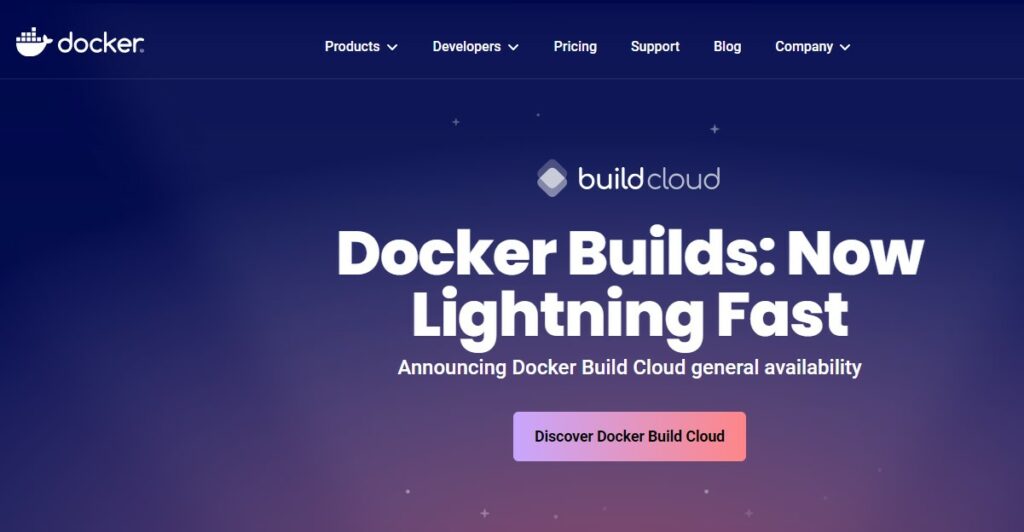
Docker Swarm is a container orchestration tool that is directly integrated with Docker.
Swarm is designed to be lightweight and easy to use.
Unlike Kubernetes, Swarm setups tend to be simpler and quicker, and it often works out of the box with existing Docker containers without significant configuration.
2. Mesos Marathon
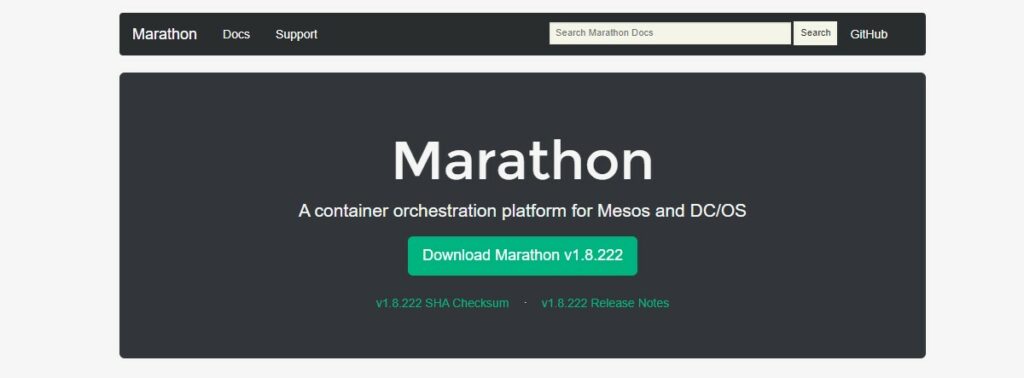
Mesos Marathon is a framework that runs on Apache Mesos, providing a platform for scaling and orchestrating containers and services.
Marathon is especially well-suited for production environments because of its ability to handle large numbers of containers.
You might appreciate Marathon for its straightforward UI, strong API options, and its ability to run both containerized and non-containerized applications.
3. Nomad
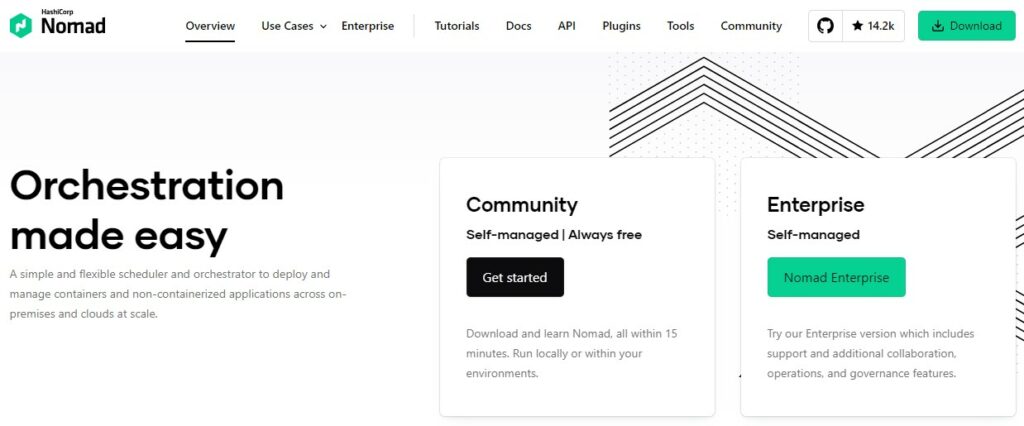
Lastly, Nomad by HashiCorp stands out with its simplicity and flexibility.
Nomad is a single binary, both for clients and servers, which might interest you if you’re looking for a straightforward setup.
Aside from offering features such as multi-datacenter and multi-region support, Nomad also runs not just containerized apps but non-container types as well, including virtual machines and standalone binaries.
Managed Kubernetes Services
When you are exploring alternatives to Kubernetes for container orchestration, you might consider several managed services.
These platforms take the complexity out of infrastructure management so you can focus on deploying and scaling your applications.
4. AWS Fargate
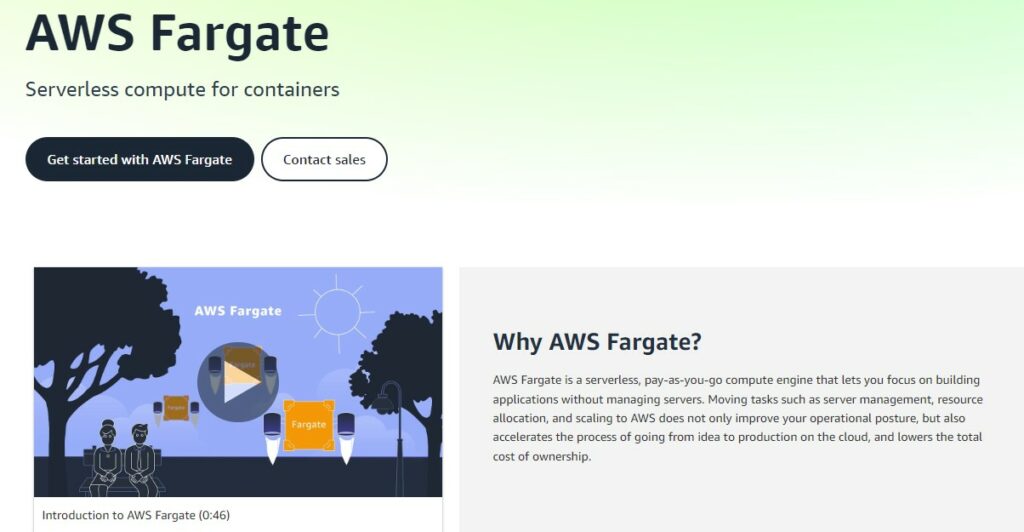
With AWS Fargate, you’re choosing a serverless compute engine for containers that works with both Amazon Elastic Container Service (ECS) and Amazon Elastic Kubernetes Service (EKS).
This means that you can run containers without managing servers or clusters.
Fargate manages the task execution:
- Serverless: No need to provision or manage servers
- Scalable: Automatically scales up or down based on demand
5. Azure Container Instances

Azure Container Instances (ACI) offers an immediate, no-frills deployment environment in Azure.
Your containerized applications are isolated and do not require any orchestration, which is perfect for simple applications or microservices.
Key attributes of ACI include:
- Fast Deployment: Get containers up and running in seconds
- Per-second Billing: You pay only for the time your containers run
6. Google Cloud Run
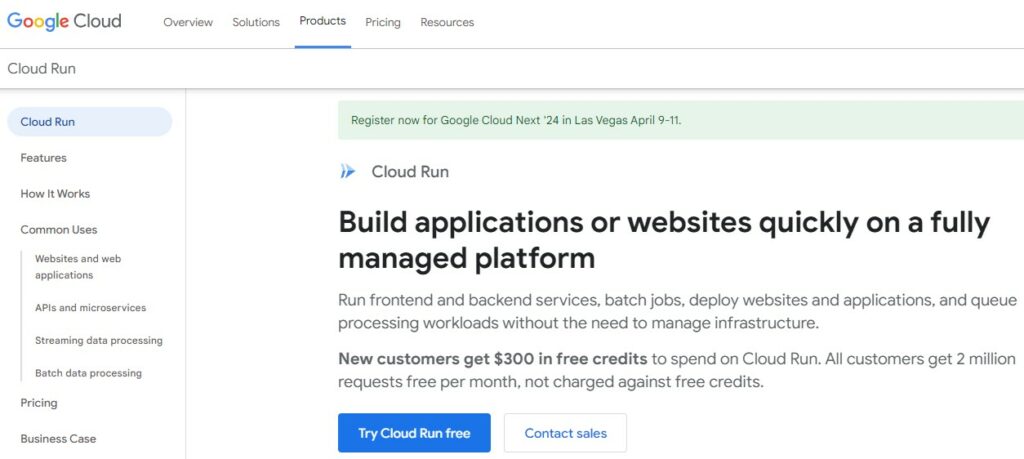
Finally, Google Cloud Run is a fully managed platform that automatically scales your stateless containers.
Google Cloud Run is built on Knative, which allows for portability across different environments.
Here’s why you might choose Cloud Run:
- Fully Managed: Google handles infrastructure, just bring your code
- Autoscaling: From zero to planet scale, depending on traffic
Evaluation Criteria
When considering alternatives to Kubernetes, it’s important to assess them based on specific criteria that align with your project goals.
Let’s focus on how they perform, scale, and the type of support they offer.
Performance
You should examine how well the system executes tasks under varying loads.
Performance can impact the speed and efficiency of your operations.
Look at metrics such as:
- Response time: How quickly does the system respond to a request?
- Throughput: How many tasks can be handled simultaneously?
Scalability
Scalability refers to the capacity of the system to handle growth.
Assess if the alternative can scale both up and out effectively.
Key questions include:
- Can it manage a growing number of containers without degradation of performance?
- Is it easy to add resources to meet increased demand?
Community and Support
A strong community and support network can be invaluable for troubleshooting and innovation.
Evaluate the alternative’s ecosystem considering:
- Community Activity: Is there active engagement in forums, on social media, and at events?
- Official Support: Does the provider offer direct and responsive support services?
Adoption Considerations
When looking at Kubernetes alternatives, you need to weigh several factors critical to your organization’s adoption process.
Migration Challenges
Migrating to a new container orchestration system can be a complex process.
You’ll face decisions about data transfer, service downtime, and reconfiguring applications to work with a new system.
Ensure that the alternative you choose has strong documentation and community support to streamline the migration.
Integration with Existing Tools
Your current technology stack should mesh well with your chosen Kubernetes alternative.
Evaluate whether potential solutions can seamlessly integrate with the CI/CD tools, monitoring systems, and cloud services you’re already using.
An ill-fitting integration can lead to increased overhead and potential disruptions to your workflow.
Security Implications
Every orchestration platform comes with its own security model.
Scrutinize the access controls, network policies, and compliance standards of the alternatives to ensure they meet or exceed the security level you require.
Transitioning to a new system might involve a learning curve; staff training on security best practices is crucial to maintain your security posture.
Key Takeaways
When exploring alternatives to Kubernetes, you have several options that cater to a range of needs, from simplicity to specific feature sets.
Here’s a concise guide:
User-Friendly Alternatives: Options like Docker Swarm are known for their ease of use and quick setup.
They are ideal if you aim for simplicity and a gentle learning curve.
Portable Solutions: Platforms such as Docker enable portability and isolation.
This can be particularly beneficial for small to large enterprise applications.
Managed Services: Services like AWS Fargate and Azure Container Instances manage containers at scale for you.
They fall into the Container as a Service (CaaS) category and alleviate the complexity of intricate orchestration.
Specialized Orchestration Tools:
Tools such as Nomad and Helios offer unique strengths that might be just what your project needs.
Look into their key features for a tailored fit.
Cloud-based Services: Azure Kubernetes Service (AKS), Amazon Elastic Container Service (ECS), and Google Kubernetes Engine (GKE) offer robust, cloud-based container management.
They ease the setup process with the added benefits of cloud infrastructure.
| Alternative Category | Example Tools |
|---|---|
| User-Friendly | Docker Swarm |
| Portability | Docker |
| Managed Services | AWS Fargate, Azure Container Instances |
| Specialized Tools | Nomad, Helios |
| Cloud-based Services | AKS, ECS, GKE |
Remember to assess the key features of each option to determine which aligns best with your project requirements and resource availability.
Each alternative presents its own set of advantages that might serve your needs better than Kubernetes in the right context.

